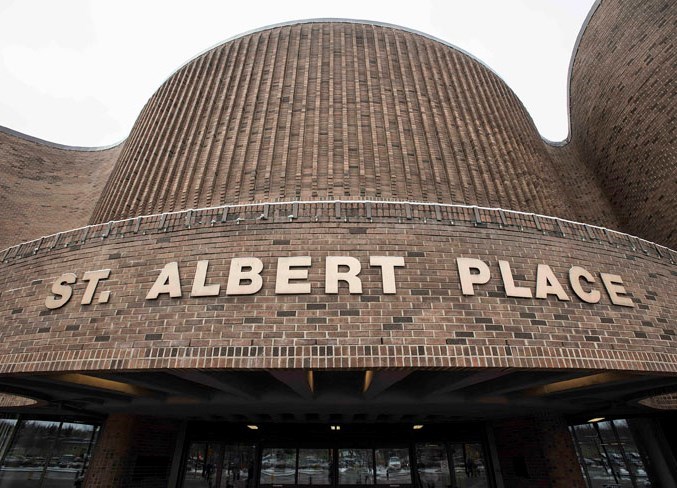St. Albert's contribution to a regional planning board could increase by nearly 35 per cent, representing a $30,000 jump, in an attempt to alleviate a substantial deficit caused by provincial funding cuts.
Municipalities in the region are facing potential cost increases to the Edmonton Metropolitan Region Board (EMRB) due to a forecast deficit of $1.3 million by 2025-26.
The deficit, according to the EMBB, is largely because of year-over-year-cuts in provincial grant funding and could see St. Albert’s share increase from $95,287 to $128,16, although increases wouldn’t be implemented until 2024-25.
The EMRB, known as the Capital Region Board until 2017, is a provincially mandated planning board representing 13 municipalities in the area, including St. Albert, Morinville, Sturgeon County, Parkland County and Edmonton.
Coun. Wes Brodhead, who serves on the EMRB's audit and finance committee, told The Gazette that he sees the situation as an example of the provincial government offloading work onto municipalities without providing necessary support.
"This is a creature of the province but it serves the region, so I get that they want the region to pay their own way. But on the other hand, it's another situation where there's a requirement imposed by the province and the consequence is more money being required from the municipalities," Brodhead said.
"We are doing work that's been mandated by them and they're not paying their fair share of the bill."
The board works to prepare the region for future growth through high-level land and infrastructure planning. Each of the 13 member municipalities pay into the board, with contribution amounts calculated through population totals. St. Albert's share has been $95,287 annually since 2020-21, with only Edmonton contributing more.
As the possible contribution increases are relatively small for a city like St. Albert, Coun. Ken MacKay told the The Gazette he wasn't worried the increase would cause substantial harm.
"Maybe a smaller municipality like the size of Devon, that might have a bigger impact for them," said MacKay, who sits on the EMRB's servicing plan standing committee.
"If you really look at it overall, it's really a small amount for the province as well to fund such an important planning board," he said. "The decisions that are made are important for the region, [so] I would like the province to actually do their part and reinstate the original funding that was there."
The provincial government has funded the board through the Alberta Community Partnerships (ACP) grant program since EMRB's formation in 2017, but has continually reduced grant funding. For 2021-22 , the EMRB received $1.5 million in ACP funding, nearly $400,000 less than what municipalities collectively contribute.
For 2019-20 and 2020-21 combined, the EMRB received $3.75 million in ACP funding.
Although the province has not announced the 2022-23 ACP funding, a briefing note prepared for the EMRB's Dec. 8 audit and finance committee meeting states the board will only receive $1 million in grant funding.
During the meeting, Leduc County Mayor Tanni Doblanko, the committee's chair, said the current funding model isn't equitable.
"Perhaps that’s part of the message that we need to share with the government — that despite the fact that they have been able to pull back their funding, municipalities have kept it stable to keep the board operational," Doblanko said. "It’s not equitable, and it doesn’t make sense for a board that’s mandated by the government to not be funding more.”
Morinville Mayor Simon Boersma, who also sits on the committee, said, “we are having the government download a lot of their work on our board, and we are certainly not getting paid."
"We need to be honest with ourselves and say ‘we’re doing a lot of work, and we’re not getting paid for it,’ and I think if we’re not getting the funding, then we need to start taking on less.”
Boersma was not available for an interview.
Brodhead said he hopes the two-year window before potential increases to municipal contributions is enough time to advocate for increased funding. During the committee meeting, Brodhead said he would like to see the province fund the EMRB through its budget, rather than grants, to ensure stability.
"It's still two years off and there's a lot that can happen," Brodhead said. "Hopefully our advocacy strategy bears fruit, and secondly, [we will] take a look at our expenditures and what our program of record will be for the next couple of years in terms of the work that actually has to be done."
To account for reduced grant funding, EMRB's administration calculated five scenarios for municipal contribution increases for the audit and finance committee to consider before the board's 2023-26 budget is finalized and voted on in February. The board’s briefing note says any increases to municipal contributions won't be implemented until 2024-25.
To make up the forecast deficit by 2025-26, EMRB administration calculated that municipal contributions would need to be increased by 34.5 per cent that year. For St. Albert, a 34.5 per cent increase would bring the total annual contribution to $128,161. This calculation assumes the provincial grant funding remains at $1 million.
EMRB administration calculated if the board received $2 million in grant funding from the province in 2025-26, municipal contributions wouldn't need to be increased.




